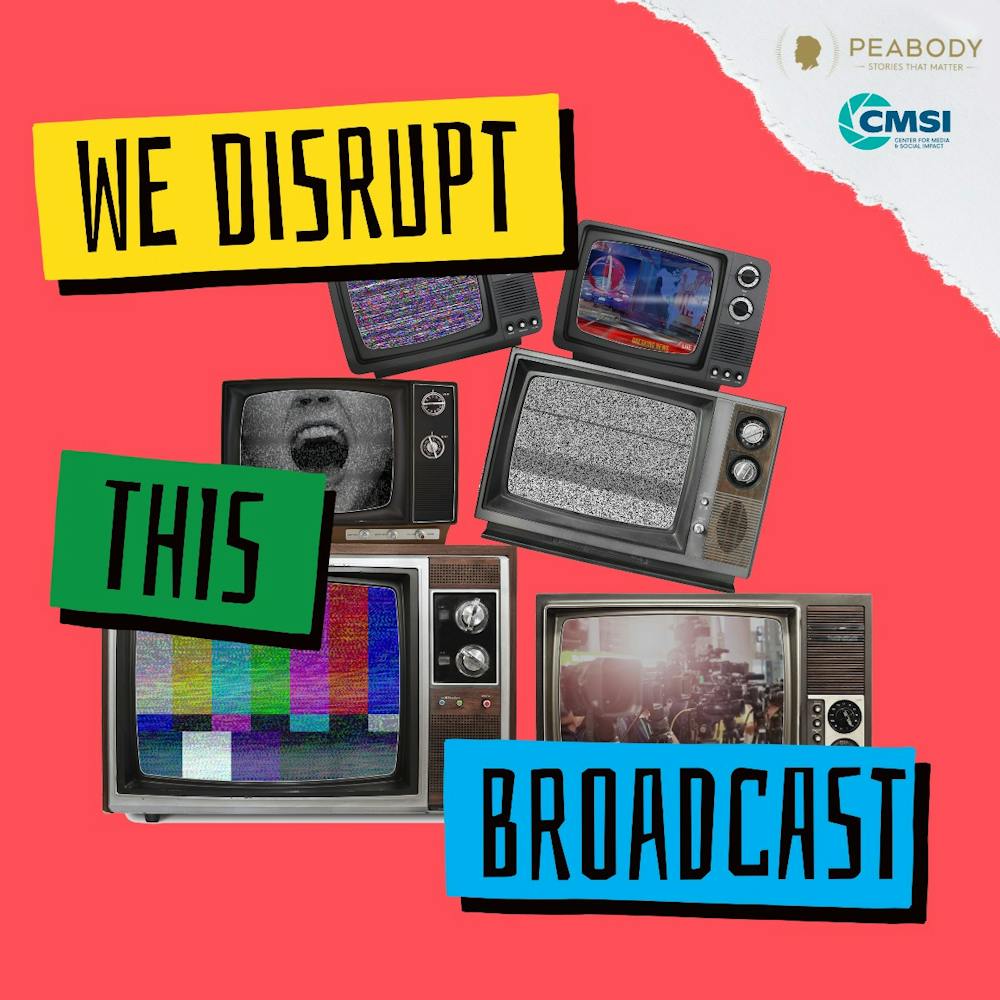“We Disrupt This Broadcast,” a podcast produced by The Peabody Awards and the Center for Media & Social Impact at American University, offers listeners an in-depth look at how entertainment can disrupt status quo narratives.
Now entering its second season, “We Disrupt This Broadcast” features Peabody Award winners and industry leaders, including Bill Lawrence and Brett Goldstein (Shrinking, Ted Lasso), Mo Amer (Mo), Ben Stiller and Adam Scott (Severance), Sharon Horgan (Bad Sisters), Tony Gilroy (Andor) and Jen Statsky (Hacks), who discuss their approach to rethinking television.
Caty Burom, executive director of CMSI and executive producer of the podcast, said “We Disrupt This Broadcast” follows a newsroom style process. The team selects the weekly topics centered around TV that challenge mainstream narratives. Then, they then identify interview guests, craft the episode’s tone and record in segments over several weeks.
“The podcast — this season and every season — is about introducing people to these amazing ‘disruptors,’ along with experts who help us to understand why these stories matter so much — to learn how they create their stories and why they matter. ‘Disruptors,’ along with experts who help us to understand why these stories matter so much,” Buron said in an email interview.
CSMI, based out of the School of Communication, is a creative innovation lab and research center that creates, studies and showcases media for social change. Patricia Aufderheide, a professor in SOC and senior researcher at CMSI, emphasized the importance of this work.
‘I conduct my own research, and when relevant, the Center, which is now run by Caty Borum, showcases it. I am very grateful to her for taking over the old Center for Social Media, which I started in 2000, and reinventing it as CMSI,” Aufderheide said.
Aufderheide also highlighted how the Center’s work and the podcast is something “everyone who aspires to make a difference with their media work can benefit from.”
For Burom it’s “about media that helps us to learn about the world and shape a better one (just, equitable, fair). This is our idea about civic imagination, which really means that we have to imagine a better world in order to build it.”
The Peabody Awards — awarded to those who create stories that reflect the pressing social issues and emerging voices — work to honor outstanding achievements in media, including television, radio, podcasts and streaming. The idea of the podcast is to discuss current TV and delve into those who create intricate and innovative stories.
“TV is a powerful cultural force that shapes our society, our beliefs, our views of the world and what we know and feel about ourselves and other people,” Burom said.
A core mission of CMSI is to inspire future creators to craft transformative stories. Podcasts, as a medium, contribute uniquely to this conversation.
“Podcasts offer an intimate, longform medium,” Aufderheide said. “The intimacy of the storytelling is an important aspect of its ability to stick in people’s minds.”
Through projects like “We Disrupt This Broadcast,” CMSI tries to turn media into a tool for reflection, activism and change by showing how entertainment media shapes both perception and policy. Professors in both CMSI and SOC encourage students to critically analyze media and create impactful stories.
The Center focuses on taking entertainment media and researching how media addresses equity, social change and today’s modern issues. Aufderheide reinforced this idea, saying, “every media producer needs to understand that either you know the implications of what you are doing with media or you work for someone who does.”
CMSI emphasizes to students that they are not just passive consumers of media content but creators who can become changemakers.
“Media representation of our realities — our social problems, our communities, our triumphs and challenges — are vital to our understanding about what is going on in the world,” Burom said. “It's crucial that we are critical and literate consumers of creative media, seeing the huge role this plays in helping us not only to understand the world, but shaping it in reality.”
This article was edited by Cara Halford, Tyler Davis and Abigail Turner. Copy editing done by Luna Jinks, Hannah Langenfeld, Ella Rousseau and Sabine Kanter-Huchting.





